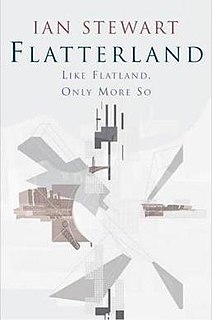Spaceland may refer to:
- Places
- Houston Gulf Airport (IATA airport code: SPX; ICAO airport code: KSPX), League City, Texas, USA; formerly named Spaceland Airport
- Spaceland (nightclub) a club in Los Angeles, California, USA
Houston Gulf Airport was a single-runway airport located in eastern League City, Texas, United States. Its FAA code was SPX and its IATA code was also SPX.
Spaceland was an alternative rock/indie rock nightclub in the Silver Lake neighborhood of Los Angeles, California, that existed between 1995 and 2011. The club was formerly a gay disco called Dreams of LA. Spaceland's owner announced the end of the venue in late 2010, with the space continuing to operate under the new name The Satellite.
- Literature
- Spaceland, a fictional location from the 1884 science fiction novel by Edwin A. Abbott, Flatland , and its sequels and adaptations
- Spaceland (novel), a 2002 science-fiction novel by Rudy Rucker, a sequel to Flatland
- Spaceland (comic book storyline) a comic storyline in the 2000AD comics illustrated by Edmund Bagwell
- Spaceland (videogaming) a fictional location in Call of Duty: Infinite Warfare, see List of zombie video games

Flatland: A Romance of Many Dimensions is a satirical novella by the English schoolmaster Edwin Abbott Abbott, first published in 1884 by Seeley & Co. of London. Written pseudonymously by "A Square", the book used the fictional two-dimensional world of Flatland to comment on the hierarchy of Victorian culture, but the novella's more enduring contribution is its examination of dimensions.
Spaceland is a science fiction novel written by the mathematician and computer scientist Rudy Rucker, and published in 2002 by Tor Books.
Edmund Bagwell was a British comics artist. Professionally he was also known as Edmund Perryman, EC Perriman, Edmund Kitsune, Anonyman and Anoniman.
- Other uses
- Spaceland (2016 album), an Icelandic album by Sin Fang

Sin Fang is the stage name of Sindri Már Sigfússon, an Icelandic musician and member of the band Seabear.



